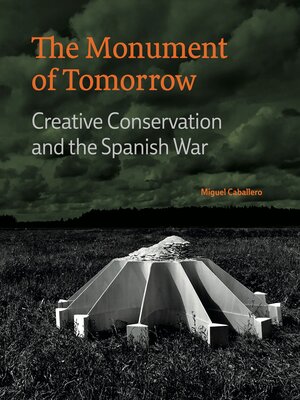
Sign up to save your library
With an OverDrive account, you can save your favorite libraries for at-a-glance information about availability. Find out more about OverDrive accounts.
Find this title in Libby, the library reading app by OverDrive.



Search for a digital library with this title
Title found at these libraries:
| Library Name | Distance |
|---|---|
| Loading... |
Rupture, iconoclasm, and tabula rasa are concepts commonly used to describe the approach to cultural heritage associated with the avant-garde and revolutionary politics during the early twentieth century. Highlighting artists and radical intellectuals who worked to protect public monuments in 1910–1950s Spain, The Monument of Tomorrow challenges the persistent narrative, imposed by Francoism, of an iconoclastic Second Republic in Spain.
Author Miguel Caballero draws on a wide range of sources to examine how artists, architects, writers, and activists transformed monument and heritage conservation into a progressive, experimental cause in their fight against fascism. During the Spanish War, with its devastating air raids, these individuals were motivated by the "defense of culture" to become determined conservationists. Caballero's research incorporates surviving monuments, architectural plans, propaganda posters, and literary works, including novels, plays, and poetry. The war became a laboratory for experiments in conserving and redefining monuments and national heritage. Modernist-style protective structures, for example, were built atop Madrid's historic monuments, including statues of Cybele, Neptune, and Phillip III in Plaza Mayor. Such innovations later influenced strategies for safeguarding monuments during the Second World War. This history, Caballero argues, makes the Spanish War pivotal to development of the concept of World Heritage.
Ultimately, The Monument of Tomorrow demonstrates that heritage conservation does not have to be politically conservative. Those interested in anti-fascism, art history, modern architecture, modernism, cultural heritage, conservation and preservation, Iberian studies, and war studies should find valuable insights in this innovative, original work.







